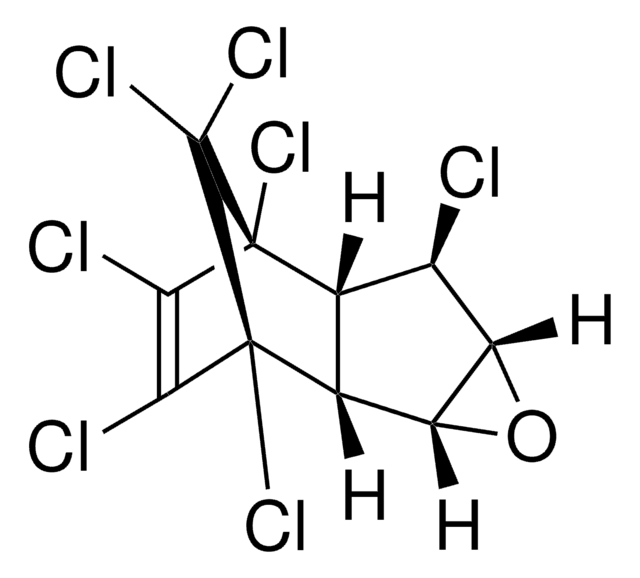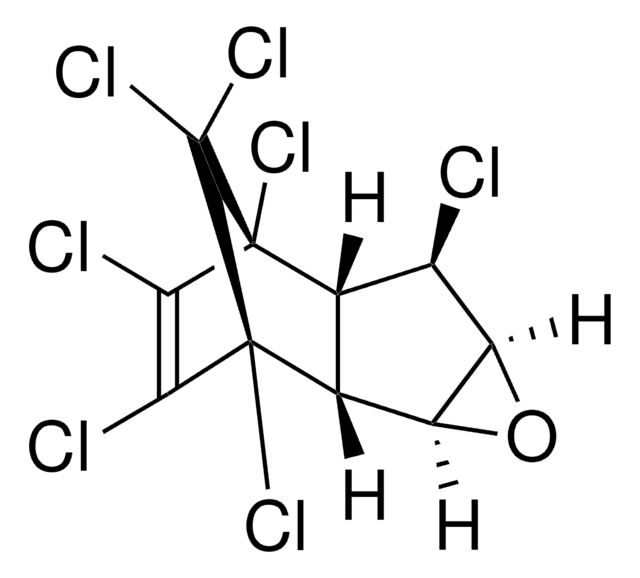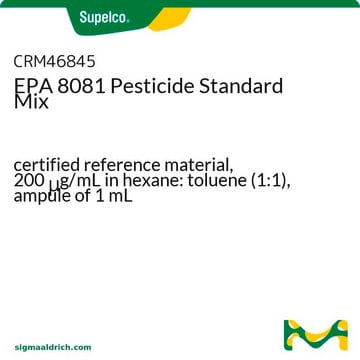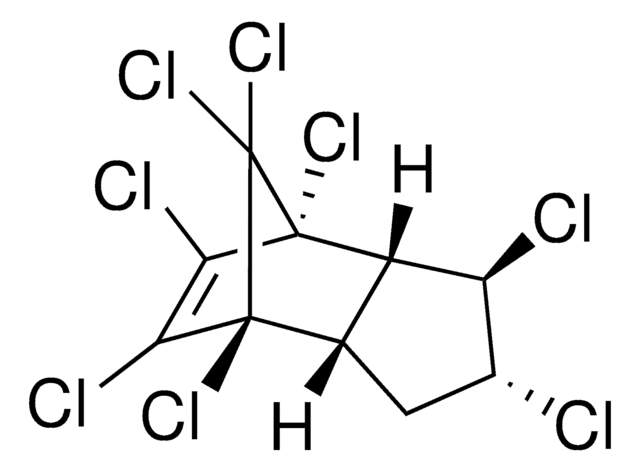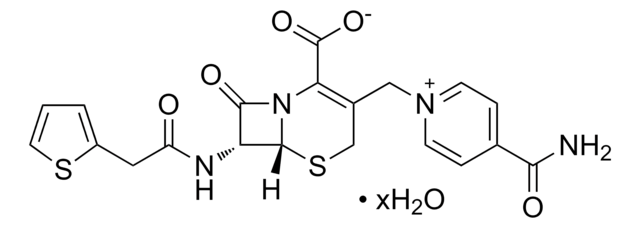34309
Heptachlor exo-epoxide
PESTANAL®, analytical standard, isomer B
Synonym(s):
cis-Heptachlor epoxide, exo-1,4,5,6,7,8,8-Heptachloro-2,3-epoxy-4,7-methano-3a,4,7,7a-tetrahydroindane, HCE
About This Item
Recommended Products
grade
analytical standard
Quality Level
product line
PESTANAL®
shelf life
limited shelf life, expiry date on the label
technique(s)
HPLC: suitable
gas chromatography (GC): suitable
application(s)
agriculture
cleaning products
cosmetics
environmental
food and beverages
personal care
format
neat
SMILES string
Cl[C@H]1[C@H]2O[C@H]2[C@H]3[C@@H]1C4(Cl)C(Cl)=C(Cl)C3(Cl)C4(Cl)Cl
InChI
1S/C10H5Cl7O/c11-3-1-2(4-5(3)18-4)9(15)7(13)6(12)8(1,14)10(9,16)17/h1-5H/t1-,2+,3+,4-,5+,8?,9?/m0/s1
InChI key
ZXFXBSWRVIQKOD-TTWWGNBVSA-N
Looking for similar products? Visit Product Comparison Guide
Related Categories
Application
Legal Information
Signal Word
Danger
Hazard Statements
Precautionary Statements
Hazard Classifications
Acute Tox. 2 Oral - Aquatic Acute 1 - Aquatic Chronic 1 - Carc. 2 - STOT RE 2
Storage Class Code
6.1A - Combustible acute toxic Cat. 1 and 2 / very toxic hazardous materials
WGK
WGK 3
Flash Point(F)
Not applicable
Flash Point(C)
Not applicable
Personal Protective Equipment
Choose from one of the most recent versions:
Already Own This Product?
Find documentation for the products that you have recently purchased in the Document Library.
Our team of scientists has experience in all areas of research including Life Science, Material Science, Chemical Synthesis, Chromatography, Analytical and many others.
Contact Technical Service